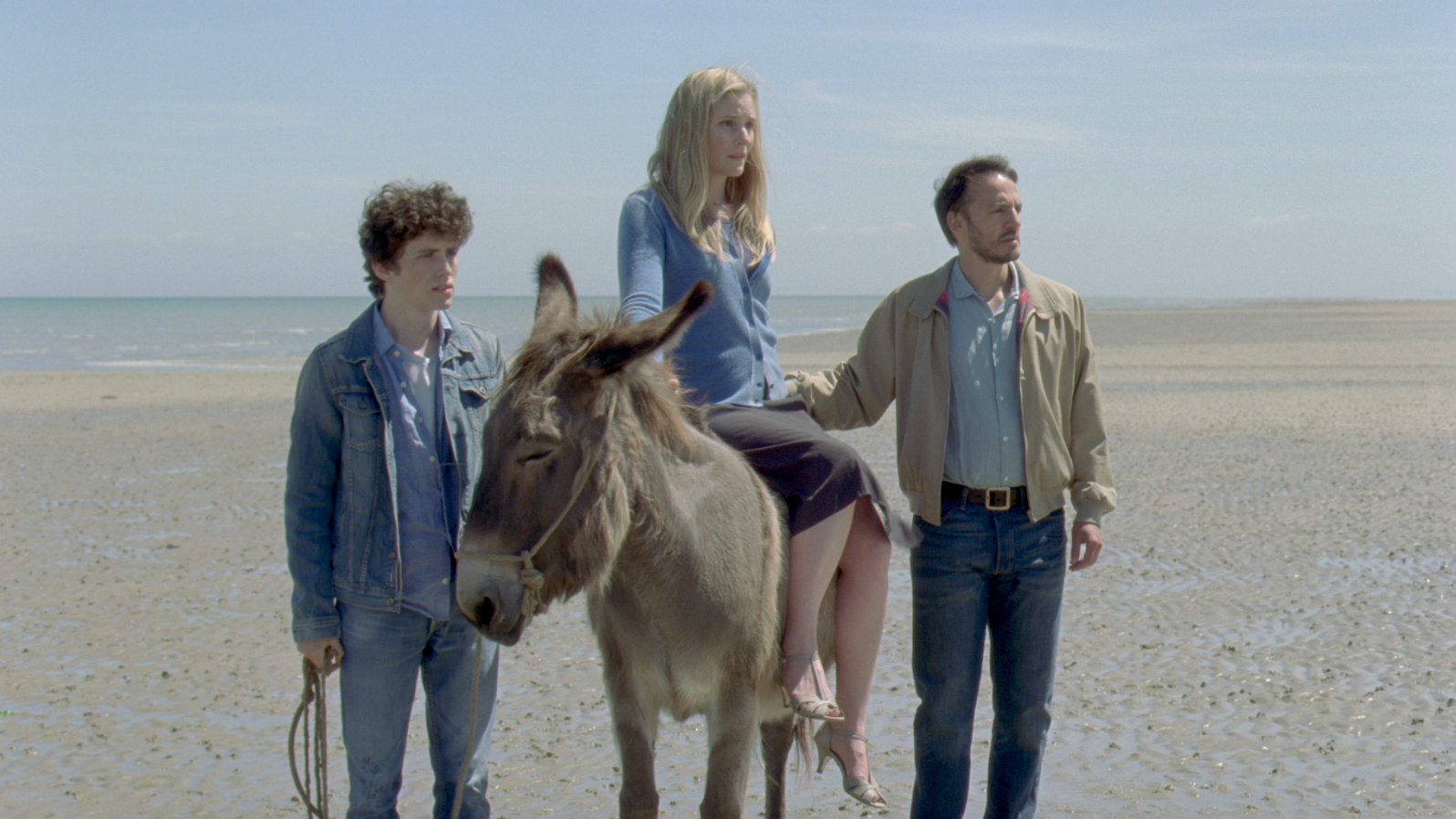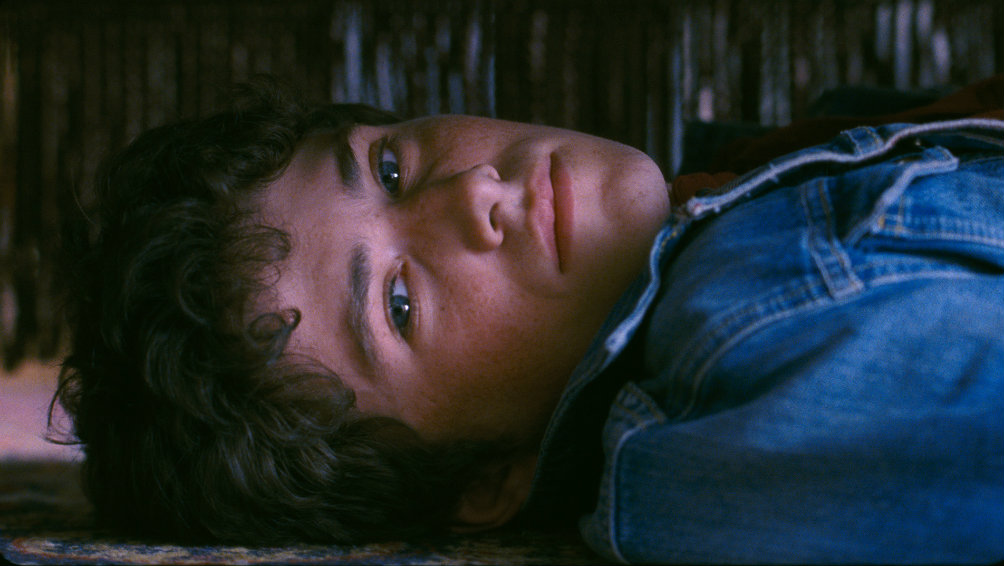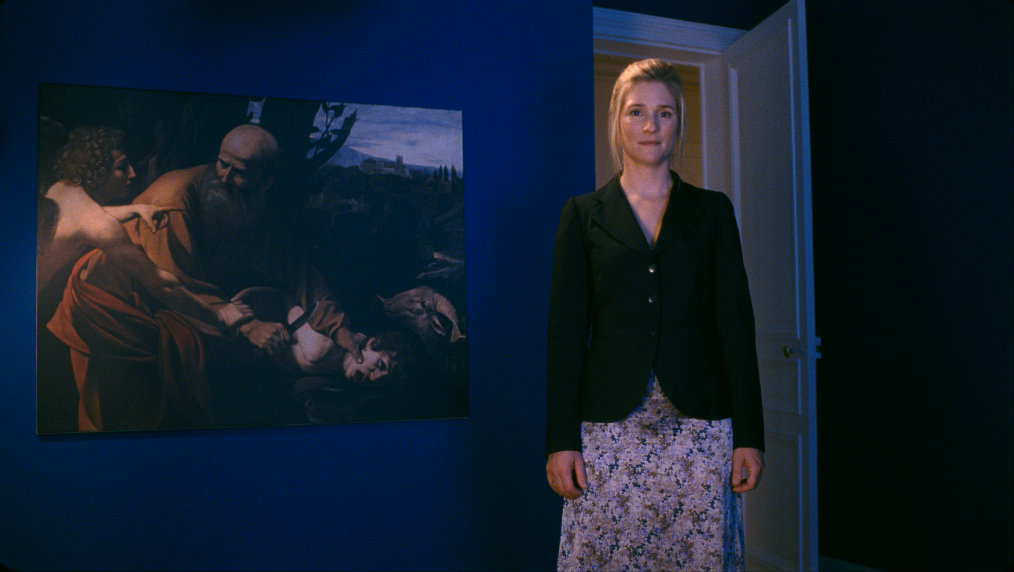The title (Le Fils de Joseph in French) is a dead giveaway: The Son of Joseph is a film rife with Biblical allusions, though it’s hardly a Bible film (and certainly not a “faith-based” one). It’s a delightful, slightly naughty, lighthearted farce about what it means to be a father. Borrowing on motifs from the Old and New Testaments for such a tale makes sense, since the Bible is all about fathers and sons, including the Father and the Son. (The Holy Ghost shows up too, after a fashion.)
Written and directed by Eugene Green (La Sapienza) and, interestingly, co-produced by Jean-Pierre and Luc Dardenne, the movie centers on a teenage Parisian, Vincent (Victor Ezenfis). The boy lives with his single mother Marie (Natacha Regnier) and, when we meet him, is a complete grump in the traditional teenage fashion. He asks his mother who his father is, and she says he doesn’t have one—though he figures out quickly who the man really is, and goes off on a search for him.

Turns out his father—Oscar Pormenor (Mathieu Amalric)—is a big-time book editor. Vincent shows up at a party for one of his authors, and then later at his office in a posh Paris hotel, where he hides under the chaise longue and hears his father behaving badly with his secretary.
In fact, it turns out that his father is not the sort of man one would want for a father. He can’t even remember how many children he has with his wife, for instance. He’s mean and paranoid and just an all-around bad guy, including to his brother, Joseph (Fabrizio Rongione).
That brother, in classic Prodigal Son fashion, used to be a burnout who was so disgraceful to his father and brother Oscar that he took his mother’s last name. But now Joseph has turned his life around. He wants to buy a farm out in Normandy where they grew up and raise cows. Oscar scoffs in his face, but later, Vincent makes Joseph’s acquaintance and begins spending time with him.
Vincent is the kind of kid who has a massive print of Caravaggio’s The Sacrifice of Isaac on the wall in his bedroom. We only find this out after discovering that the film is divided into chapters: “The Sacrifice of Abraham,” “The Golden Calf,” “The Sacrifice of Isaac,” “The Carpenter,” and “The Flight into Egypt.” Caravaggio pops up in the first chapter, and the final chapter has the most obvious allusions to the Bible: by the end of it (not to really give anything away) we have our Holy Family, complete with donkey, the “virgin” dressed in the traditional blue used in paintings of Mary for centuries, fleeing danger for the shore.

And yet the whole thing is sort of like a Bible Remix Lite. It’s reasonable to assume that Biblical patriarchs, for instance, might lose track of how many children they have. Joseph and Vincent have several conversations about how you know God is speaking to you, and how Joseph (in the Bible) chose to become Jesus’ father. Vincent makes one key choice based on what he believes an angel told him. There are more paintings, more allusions throughout—and yet it’s not an allegory. Don’t go trying to find the key to the film in a Bible story. A lot of the film’s fun comes from just seeing those motifs pop up, like jokes.
The film also—more subtly—relies on a chess metaphor: visually, most social interactions are constructed as pairs of people standing unnaturally at a strange distance from one another, the camera shooting them head-on in the center of the frame (think Wes Anderson). People also only seem to move in straight lines, then veer off in diagonal lines, in a way that just looks like they’re moving through the world by bouncing from square to square. It’s weird, but once you get used to it, the odd mannerisms and line delivery make each scene like a tiny, precise play. There’s a definite point near the film’s end in which an actual chess board shows up, and then is reflected in the characters’ placement and movement around the room; this is part of the story.
So is the implication that the characters in the Bible—who so often repeated one another’s names, life choices, and more—are just chess pieces? I don’t think so. The film isn't going that far. It just wants to remind us how old these conflicts are, and how important love and kindness are, and, at the end of the day, to mak us laugh.
Alissa Wilkinson is Christianity Today’s critic-at-large and an assistant professor of English and humanities at The King’s College in New York City. She is co-author, with Robert Joustra, of How to Survive the Apocalypse: Zombies, Cylons, Faith, and Politics at the End of the World (Eerdmans, April 2016). She tweets @alissamarie.











